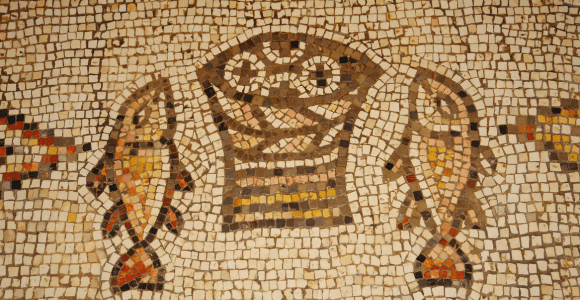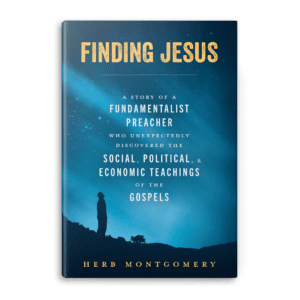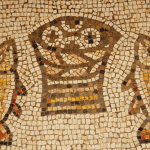
Again, the early church had a much less individualistic culture than those many Christians practice privately and personally today. Jesus’ teachings taught followers to love their neighbors as themselves: to consider us all connected to each other and part of one another. Loving another was a way of loving oneself, because what affected one affected us all. Injustice to one was a threat to justice for all.
Welcome Readers! Please subscribe to Social Jesus Here.
(Read this series from the beginning at Part 1 and Part 2.)
“God’s grace was so powerfully at work in them all that there were no needy persons among them. For from time to time those who owned land or houses sold them, brought the money from the sales and put it at the apostles’ feet, and it was distributed to anyone who had need. (Acts 4:33-35, emphasis added)
Today, what would a community look like if those who had more than they needed to thrive shared their superfluous resources so those who didn’t have enough could also thrive too?
John Dominic Crossan refers to this theme in Jesus’ teaching as Enoughism:
“Do not, by the way, let anyone tell you that [Jesus’ teaching] is Liberalism, Socialism, or Communism. It is—if you need an -ism—Godism, Householdism or, best of all, Enoughism. We sometimes name that biblical vision of God’s World-Household as Egalitarianism but, actually, Enoughism would be a more accurate description.” (The Greatest Prayer: Rediscovering the Revolutionary Message of the Lord’s Prayer, pp. 3-4)
I like Enoughism.
Practicing a social, political or economic ethic in harmony with the belief that God genuinely loves everyone means we have to ask some questions:
- Are our society’s children and dependents well fed?
- Do they have adequate clothing and shelter?
- What about people who are sick? Can they have adequate health care without risking bankruptcy?
- Are elderly people who are past their years of capitalist productivity assured that they will also thrive and be taken care of?
- Are the responsibilities and funding for ensuring everyone in our society has enough food, shelter and clothing distributed fairly across community members?
- Are those who already have very little made to feel pressured to give even more while those who have so much can opt out of giving?
- Does everyone have enough, not simply to scrape by but to thrive and enjoy this life as the beautiful gift that it can be? Or, instead, do some have far too little while others have far too much, more than they could ever possibly need?
- For those of us with means, what does it mean to use our social, political, or economic wealth to build the kind of human community that Jesus envisioned where everyone is cared for and taken care of?
None of these questions even begin to address the myriad reasons our differences from one another are used to exclude some of us from this kind of care. There are environmental implications of ensuring the earth and all its inhabitants are included in the community of enoughism too.
These are all questions worth asking. Whether we ask them in a religious context or not, our answers will determine what kind of future as human beings we create. Will the future we create today be life-giving or death-dealing for those to whom we leave it?
 Herb’s new book, Finding Jesus: A story of a fundamentalist preacher who unexpectedly discovered the social, political, and economic teachings of the Gospels, is now available at Renewed Heart Ministries.
Herb’s new book, Finding Jesus: A story of a fundamentalist preacher who unexpectedly discovered the social, political, and economic teachings of the Gospels, is now available at Renewed Heart Ministries.














